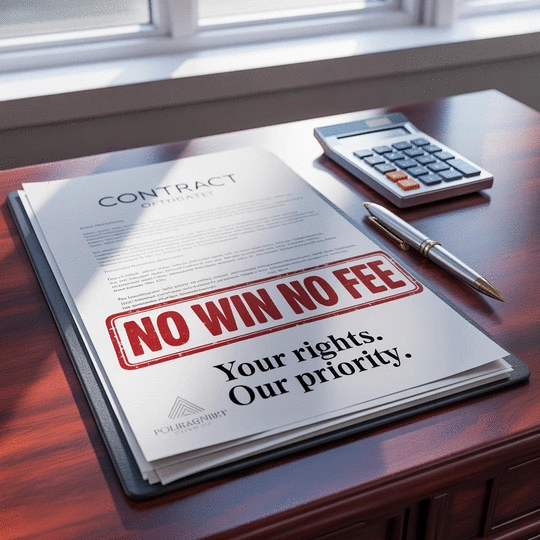Evidence Matters in Accident Claims
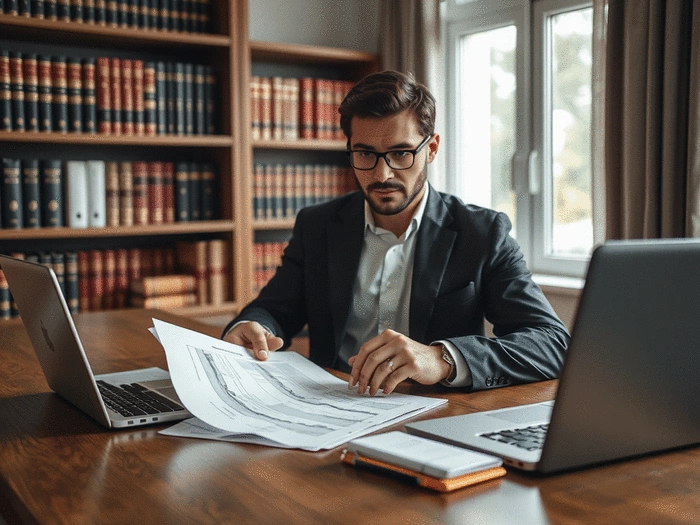
Posted on: 2025-10-02
By: Sarah Thompson
When it comes to accident claims, understanding the pivotal role of evidence can significantly enhance your chances of a successful outcome. Here's what you will learn:
What You Will Learn
- Importance of Evidence: Solid evidence is crucial in establishing liability and the circumstances of an accident, impacting the success of your claim.
- Types of Evidence: Key evidence types include documentary evidence (like police and medical reports), visual evidence (photos and videos), and witness testimonies.
- Legal Principles: Understanding duty of care, breach of duty, and causation is essential in personal injury claims to effectively gather and present evidence.
- Expert Testimonies: Professional opinions can greatly enhance credibility, explaining the nuances of your injuries or the accident circumstances.
Types of Evidence Critical for Accident Claims
Understanding the types of evidence that bolster your case is essential for successful accident claims. Below are the essential categories of evidence to focus on:
Documentary Evidence
Includes police reports, medical records, and other relevant documents supporting your case.
Visual Evidence
Photos and videos documenting the accident conditions and injuries.
Witness Testimonies
Eyewitness accounts that provide additional perspectives on the incident.
Expert Testimonies
Professional opinions that lend credibility to your claims regarding injuries and damages.
The Essential Role of Evidence in Winning Accident Claims
When it comes to accident claims, gathering the right evidence is absolutely crucial. Evidence serves as the backbone of your case, helping to establish not only what happened but also who is responsible. Whether you're dealing with a personal injury claim or an employment dispute, having solid evidence can significantly boost your chances of a successful outcome. In this section, we’ll explore the various facets of evidence and its importance in legal proceedings.
Moreover, understanding how evidence influences the outcomes of your case can make a world of difference in your approach. At Solicitors No Win No Fee, we strive to empower you with the knowledge to navigate the complexities of legal claims confidently!
Understanding the Importance of Evidence in Legal Proceedings
Let’s start with the basics. What are accident claims, and why do they matter? Accident claims arise when individuals seek compensation for injuries sustained due to someone else's negligence. These claims can stem from a variety of incidents, such as road traffic accidents, slips and falls, or workplace injuries. The impact of these accidents can be profound, affecting not just physical health but also emotional well-being.
- Accident claims help victims receive compensation for medical expenses.
- They also cover lost wages and future earnings.
- Additionally, claims can address pain and suffering caused by the incident.
In essence, accident claims can provide much-needed relief and support during a challenging time. But remember, the strength of your claim will largely depend on the evidence you gather!
Defining Accident Claims and Their Impact on Victims
Accident claims serve as a pathway for victims to seek justice and compensation. They can have a far-reaching impact on the lives of those affected. Not only do they assist in recovering financial losses, but they can also validate a victim's experience and suffering. By standing up for your rights through a claim, you send a message that negligence should not go unaccounted for!
How Evidence Influences Case Outcomes and Compensation
The role of evidence in determining the success of your claim cannot be overstated. Every piece of evidence collected can either fortify your case or leave it vulnerable to dismissal. Strong evidence can significantly enhance the likelihood of receiving adequate compensation. This is especially important when negotiating settlements, as insurers often rely heavily on the evidence presented to assess liability and damages.
So, what types of evidence should you focus on gathering? Let’s take a look at that next!
The Intersection of Personal Injury Law and Evidence
In personal injury law, several key legal principles govern accident claims. These principles help to define how evidence is treated in legal proceedings, including aspects such as liability and negligence. When you understand these principles, you can better prepare your case and gather compelling evidence that supports your claim.
- Duty of Care: Establishing that the other party had a responsibility to ensure your safety.
- Breach of Duty: Demonstrating that this duty was violated through negligent actions.
- Causation: Proving that the breach directly caused your injury.
Grasping these concepts can significantly influence the trajectory of your case. This is why consulting with experienced professionals, like those at Solicitors No Win No Fee, can guide you through this intricate process.
Key Legal Principles Governing Accident Claims
Understanding how these legal principles apply to your situation allows you to build a more robust claim. This is crucial, especially when dealing with complex cases involving multiple parties or insurance companies. The clearer your understanding, the better positioned you are to present your case effectively!
Understanding Liability and Negligence in Accident Cases
Liability and negligence are at the heart of personal injury claims. It's essential to establish who is liable for your injuries and how their negligence contributed to the accident. In many cases, having a clear understanding of these concepts influences the type of evidence you need to collect. For instance, if you were injured at work, documenting workplace safety standards could play a vital role in proving negligence.
Types of Evidence Crucial for Accident Claims Success
Now that we've established the importance of evidence, let's dive into the types of evidence that can significantly strengthen your accident claim. Each type plays a vital role in establishing the facts of your case and supporting your claims for compensation.
- Documentary Evidence: This includes police reports, medical records, and any relevant documentation that supports your case.
- Visual Evidence: Photos and videos can provide undeniable proof of the circumstances surrounding your accident.
- Witness Testimonies: Eyewitness accounts can add credibility and detail to your version of events.
- Expert Testimonies: The opinions of professionals can lend weight to your claims about injuries and damages.
Gathering a combination of these types of evidence is key to presenting a compelling case. Remember, the more thorough your preparation, the better your chances of success!
Documentary Evidence: The Role of Police Reports and Medical Records
Documentary evidence plays a foundational role in your claim. Police reports can provide an objective account of the incident, while medical records detail the injuries sustained. These documents not only serve as proof of the accident but also establish a link between the incident and your ongoing health challenges.
Visual Evidence: Photos and Videos to Strengthen Your Claim
Visual evidence can be incredibly persuasive. Photos of the accident scene, visible injuries, or even safety hazards can help paint a clearer picture of what transpired. Additionally, dashcam or surveillance footage can be invaluable in corroborating your account and dispelling any doubts regarding liability.
Witness Testimonies: How Eyewitness Accounts Can Shape Cases
Eyewitness testimonies can offer fresh perspectives on the incident. Their accounts may provide critical details that you might have missed or reinforce your own recollection of events. It’s important to gather contact information from witnesses at the scene so that you can reach out to them later if necessary.
Expert Testimonies: The Value of Professional Opinions in Court
Finally, expert testimonies can add significant value to your claim. Whether it's a medical professional discussing your injuries or an accident reconstruction expert providing insights into how the incident occurred, their expertise can bolster your case. The right expert can help clarify technical aspects to the court, making it easier for judges and juries to understand the complexities of your situation.
Building a Strong Case Through Evidence Collection
Now that you’re familiar with the types of evidence, let’s talk about how to gather it effectively. A strong case is built on thorough evidence collection, and knowing where to start is critical.
- Step-by-Step Guide to Gathering Relevant Evidence: Begin by documenting everything immediately after the accident, including taking photographs, obtaining witness statements, and collecting any relevant documents.
- Utilizing Accident Reconstruction Specialists: These professionals can analyze the scene and provide insights that support your claim.
- Understanding the Role of Forensic Evidence: Forensic evidence plays a crucial role in substantiating claims, especially in complex cases.
Being proactive about evidence collection can help strengthen your case and fortify your position when negotiating with insurance companies.
Step-by-Step Guide to Gathering Relevant Evidence
Gathering evidence systematically can simplify the process. Start by documenting the accident site and any injuries. Then, move on to collecting police reports and medical records. Finally, reach out to any witnesses to gather their accounts. The more organized you are, the easier it will be later on!
Utilizing Accident Reconstruction Specialists in Your Case
Accident reconstruction specialists can analyze the details of your case to provide a clearer picture of what happened. They use various methods to evaluate evidence such as skid marks, vehicle damage, and road conditions. Their insights can be invaluable when establishing liability!
Understanding the Role of Forensic Evidence in Accident Claims
Forensic evidence can take various forms, including technical analysis, scientific testing, and expert evaluations. This type of evidence can support claims regarding injuries and the circumstances surrounding an accident. It provides a scientific basis for understanding what happened and can help support your case in legal proceedings.
Emerging Technologies in Evidence Collection and Analysis
As technology continues to evolve, so does the way we collect and analyze evidence. Emerging technologies can enhance your case and streamline evidence collection processes.
- How AI and Technology Are Changing Accident Reconstruction: AI tools are being used to analyze accident data and create simulations that can clarify how an accident occurred.
- Innovative Tools for Documenting Accident Scenes: Drones and 360-degree cameras can provide comprehensive views of accident scenes, capturing elements that traditional methods may miss.
- The Use of Video Evidence in Modern Accident Claims: Video evidence can be crucial in supporting testimonies and clarifying the sequence of events during an accident.
Leveraging these technologies not only makes the evidence collection process more efficient but can also strengthen your overall case by providing compelling visual and data-driven insights.
How AI and Technology Are Changing Accident Reconstruction
AI is revolutionizing how we understand accidents. By analyzing data quickly, AI can help create accurate reconstructions of events, offering insights that can be highly beneficial in court. This means that the evidence you present can be more compelling than ever!
Innovative Tools for Documenting Accident Scenes
Drones and advanced imaging technology are transforming how accident scenes are documented. These tools provide unique perspectives that can capture details often overlooked. Better documentation helps to create a clearer narrative of what transpired.
The Use of Video Evidence in Modern Accident Claims
Video evidence is becoming increasingly important in personal injury cases. Footage from dashcams or surveillance cameras can provide critical insights into the events leading up to an accident. This type of evidence can often speak louder than words, making it a powerful tool in your claim.
The Psychological Impact of Evidence on Personal Injury Claims
Evidence is not only vital for the factual aspects of your case but can also support claims for emotional distress. This can play a significant role in how your claim is perceived and compensated.
- Using Evidence to Support Claims for Emotional Distress: Psychological evaluations can help establish the emotional impact of an accident.
- Understanding the Role of Psychological Evaluations: These evaluations provide insight into how the accident has affected your mental health, which can be an essential part of your compensation claim.
Incorporating psychological evidence can provide a fuller picture of your experience and the repercussions of the incident, further solidifying your claim for compensation.
Using Evidence to Support Claims for Emotional Distress
The emotional fallout from an accident can be profound. By gathering evidence in the form of psychological evaluations, you can illustrate the impact of the incident on your mental health. This adds a necessary layer to your claim that shouldn't be overlooked!
Understanding the Role of Psychological Evaluations
Psychological evaluations are performed by qualified professionals who can assess the emotional and mental state of accident victims. Their findings can substantiate claims for emotional distress, helping illustrate the full impact of the accident on your life.
Comparative Insights: Evidence Requirements Across Different Jurisdictions
Understanding that evidence requirements can vary significantly depending on where you live is crucial. Different legal jurisdictions may have distinct rules and standards for how evidence is handled, which can affect your accident claim.
- How Different States Handle Evidence in Accident Claims: Each state may have different laws governing what types of evidence are acceptable.
- International Perspectives on Evidence in Personal Injury Cases: Laws can vary widely across countries, influencing the approach to evidence collection.
- Legal Precedents Shaping Evidence Standards: Case law can often define how evidence is treated in future claims.
Being aware of these differences is essential for anyone pursuing an accident claim. At Solicitors No Win No Fee, we can help you navigate these complexities and ensure you're prepared, no matter where you are in the UK.
How Different States Handle Evidence in Accident Claims
Each state has its own legal framework governing evidence in accident claims, which can affect your strategy. Understanding these nuances can help you prepare effectively for your case!
International Perspectives on Evidence in Personal Injury Cases
Looking at how other countries handle evidence can provide valuable insights into best practices. It can also highlight areas where the UK may need to evolve its legal standards to ensure fairness and clarity in accident claims.
Legal Precedents Shaping Evidence Standards
Legal precedents play a vital role in determining how evidence is treated in court. Staying informed about recent rulings can help you understand what to expect during your claim process!
Did You Know?
According to recent studies, nearly 70% of personal injury claims that include comprehensive evidence documents receive higher compensation. This statistic underscores the critical role that well-collected evidence plays in the success of your accident claim!
Frequently Asked Questions About Evidence in Accident Claims
Q1: Why is evidence so important in an accident claim?
A1: Evidence forms the foundation of your claim, establishing what happened, who was at fault, and the extent of your injuries and damages. Strong evidence significantly increases your chances of a successful outcome and adequate compensation.
Q2: What are the main types of evidence I should gather for an accident claim?
A2: The essential types of evidence include documentary evidence (police reports, medical records), visual evidence (photos, videos), witness testimonies, and expert testimonies (medical professionals, accident reconstruction specialists).
Q3: How do legal principles like duty of care and negligence relate to evidence?
A3: These principles define how evidence is used to prove your case. You need evidence to show that the other party had a "duty of care" towards you, that they "breached" this duty, and that this breach "caused" your injuries. Understanding these principles helps you gather the most relevant evidence.
Q4: Can psychological evaluations be considered evidence in an accident claim?
A4: Yes, psychological evaluations can be crucial evidence. They help substantiate claims for emotional distress and mental health impacts resulting from the accident, providing a fuller picture of the incident's repercussions on your life.
Q5: How can a solicitor help with evidence collection for my accident claim?
A5: A knowledgeable solicitor can guide you in identifying the most relevant evidence, ensuring it's collected correctly to avoid legal pitfalls, and interpreting complex legal standards in your jurisdiction. They can also assist in leveraging emerging technologies for evidence analysis.
Summarizing the Influence of Evidence on Accident Claim Success
As we delve into the world of accident claims, it’s clear that evidence plays a pivotal role in determining the success of a case. Understanding what evidence is crucial for your claim not only empowers you but also enhances your ability to achieve a favorable outcome. It’s essential to recognize how different types of evidence can substantiate your claims and strengthen your position during legal proceedings. So, let’s break down the key takeaways!
Key Takeaways: Understanding Evidence's Role in Your Claim
When it comes to accident claims, having a firm grasp of the types of evidence you need to gather is vital. Here are the essential types of evidence to focus on:
- Documentary Evidence: This includes police reports, medical records, and any relevant documents that can support your case.
- Visual Evidence: Photos and videos from the accident scene can provide a clear depiction of what occurred.
- Witness Testimonies: Eyewitness accounts can significantly influence the perception of your case.
- Expert Testimonies: Professional opinions can add depth and credibility to your claims.
Additionally, having legal expertise is critical when navigating these evidence requirements. A skilled solicitor can help you identify what evidence is most relevant to your specific case and guide you through the collection process. This expertise can make a significant difference in the strength of your claim.
Essential Types of Evidence to Gather for a Strong Case
To summarize, the essential types of evidence for your accident claim include:
- Official documents like accident reports and medical records.
- Photographic and video evidence of the incident and surrounding environment.
- Statements from witnesses who were present during the accident.
- Testimonies from experts in fields such as medicine or accident reconstruction.
Each type of evidence serves a unique purpose and contributes to building a compelling case. As your advocate at Solicitors No Win No Fee, I can assist in gathering this evidence effectively to maximize your chances of a successful claim.
The Importance of Legal Expertise in Navigating Evidence
Understanding the right evidence to gather is just one part of the equation; having the right legal guidance throughout the process is equally important. A knowledgeable solicitor can help you:
- Determine which evidence is most relevant to your case.
- Ensure that all evidence is collected correctly to avoid any legal pitfalls.
- Interpret complex legal standards surrounding evidence in your jurisdiction.
At Solicitors No Win No Fee, we’re committed to simplifying the legal process for you. Our goal is to ensure you feel supported and empowered as you pursue your accident claim.
Taking Action: Next Steps for Accident Victims
If you've been involved in an accident, taking action quickly is essential. Knowing how to seek legal assistance can make a world of difference in your claim journey. Here’s how to get started:
How to Seek Legal Assistance for Your Accident Claim
Finding the right legal support is key. Here are the steps to take:
- Research and Referrals: Look for reputable solicitors who specialize in no win no fee claims.
- Initial Consultation: Schedule a consultation to discuss your case—most solicitors offer this for free.
- Discuss Fees and Terms: Clarify how the no win no fee structure works and what to expect.
Taking these steps will set a strong foundation for your claim and help you feel confident moving forward.
Preparing for Your Consultation: What to Bring
Before meeting with your solicitor, it’s important to prepare. Bring the following:
- Any relevant documents such as medical records and accident reports.
- Photos or videos related to the accident.
- A list of witnesses and their contact information, if available.
Being well-prepared will ensure your consultation is productive and informative.
Understanding the Claim Process: From Demand Letter to Settlement
The journey through an accident claim can feel overwhelming, but understanding the steps can help:
- Filing a Demand Letter: This letter outlines your claim details and what compensation you’re seeking.
- Negotiation: After the letter is sent, negotiations will begin, often requiring legal representation.
- Settlement or Trial: Most cases settle out of court, but some may require a trial if negotiations fail.
At Solicitors No Win No Fee, we’re here to ensure you understand every step of the process and feel supported as you pursue the justice you deserve. Together, we can navigate this journey toward resolution and compensation!
Recap of Key Points
Here is a quick recap of the important points discussed in the article:
- Gathering Evidence is Crucial: The strength of an accident claim largely depends on the quality and quantity of evidence collected.
- Types of Evidence to Focus On: Essential evidence includes documentary evidence (police reports, medical records), visual evidence (photos, videos), witness testimonies, and expert testimonies.
- Legal Principles Matter: Understanding concepts like duty of care, breach of duty, and causation is vital for effectively building your case.
- Utilize Technology: Emerging technologies like AI and drones can enhance evidence collection and analysis, making cases more compelling.
- Seek Legal Expertise: Consulting with a solicitor can significantly improve your understanding of evidence requirements and legal standards in your jurisdiction.
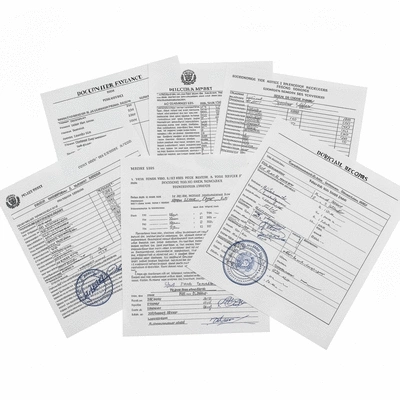
Final content section.
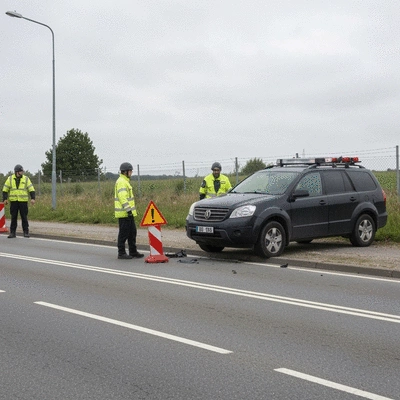
 Did you know that many tenants are unaware of their rights regarding housing disrepair? Understandin
Did you know that many tenants are unaware of their rights regarding housing disrepair? Understandin
 In today's uncertain job market, knowing your rights when it comes to termination is more crucial th
In today's uncertain job market, knowing your rights when it comes to termination is more crucial th
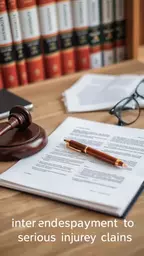 In the world of serious injury claims, navigating financial challenges can be daunting. Interim paym
In the world of serious injury claims, navigating financial challenges can be daunting. Interim paym
